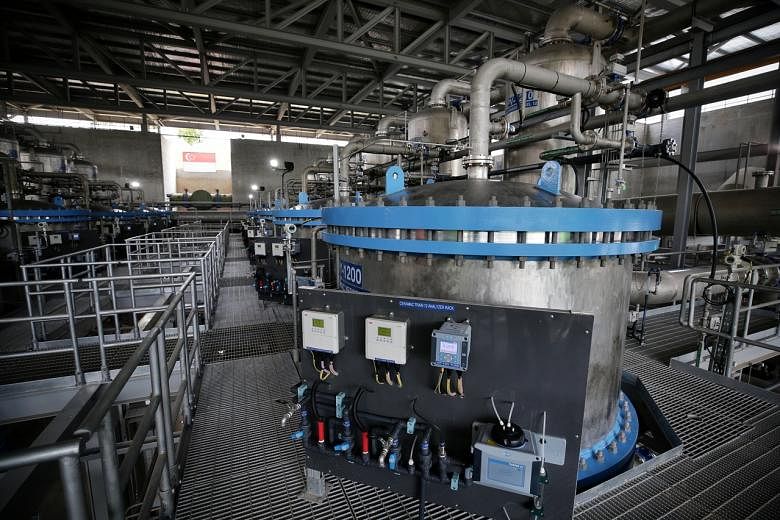SINGAPORE - One of Singapore's oldest water treatment plants will be undergoing a major facelift that will see it being fitted with state-of-the-art technology, national water agency PUB announced on Monday (June 21).
Works on the Choa Chu Kang Waterworks - which has buildings and equipment constructed before 1981 - are expected to start next year and be completed by 2026.
The $28.8 million tender was awarded to engineering design and consultancy company Binnies Singapore, which will be responsible for the detailed engineering design and construction supervision of the plant reconstruction works, PUB said.
When fully renovated, the plant will feature new water treatment technologies, including an advanced membrane filtration system and an automated chemical preparation or dosing system.
It will also be outfitted with smart technologies, such as sensors to monitor and predict the performance of equipment in real time, and closed-circuit television cameras with video analytics capabilities. When anomalies are detected - such as if staff are not wearing proper protective equipment - the central video management system will send an alert to operators.
The Choa Chu Kang plant can process up to 80 million gallons of raw water a day, treating water from reservoirs in the western catchment. These include the Kranji, Pandan, Tengeh, Poyan, Sarimbun and Murai reservoirs.
Its transformation into a state-of-the-art facility with the latest water treatment technologies and smart capabilities will greatly enhance the plant's operations, maintenance, safety and security, PUB said at the launch of the Singapore International Water Week 2021.
The annual conference on water innovation, attended by government officials, academics and water industry representatives, is being held virtually this year because of Covid-19 restrictions.
Ms Grace Fu, Minister for Sustainability and the Environment, said in her opening address that water security is a longstanding issue for cities worldwide, especially with population growth and climate change adding pressure on water resources.
Varying access to clean water also exacerbates inequality, with communities that lack sanitation and clean water suffering more from the pandemic, she added.
One of the United Nations' sustainable development goals is to ensure access to water and sanitation for all, said Ms Fu.
"To achieve this goal, we must find new and innovative ways to increase the resilience of the world's water resources and manage water demand by encouraging households and industries to conserve water," she said.
Singapore is developing new water technologies that will help it to enhance the country's water security with a smaller carbon footprint.
Ms Fu pointed to how Singapore was increasing its use of renewable energy in its water facilities.
"In July, we will be officially opening one of the largest floating solar panel systems in the world on one of our reservoirs, Tengeh Reservoir. This solar panel system will generate enough solar power to meet the energy demands of our five water treatment plants," she said.
PUB said the upgraded Choa Chu Kang plant will also have new rooftop solar panels added to the existing 1 MW-peak system, to power its operational needs and reduce its carbon footprint.
Ms Fu said Singapore hopes to contribute to global water security through collaboration and partnerships.
In the past two decades, PUB has engaged in around 660 research projects, collaborating with partners from 30 countries, including researchers from universities, water industry firms and utilities organisations.
Ms Fu said PUB is working with partners on removing carbon from the atmosphere with seawater and waste streams.
"We hope that this research could lead us to new solutions that drastically reduce our carbon emissions," she said.


